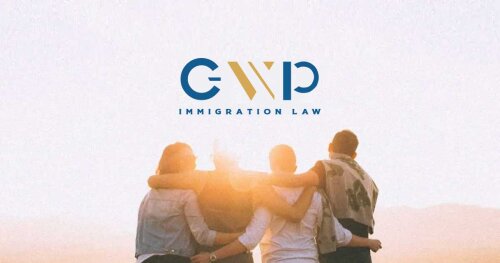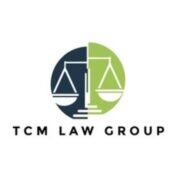Best Same Sex & LGBT Lawyers in Las Vegas
Share your needs with us, get contacted by law firms.
Free. Takes 2 min.
Free Guide to Hiring a Family Lawyer
List of the best lawyers in Las Vegas, United States
About Same Sex & LGBT Law in Las Vegas, United States
Las Vegas is in Clark County, Nevada, and legal rights for same-sex and LGBT people in Las Vegas are shaped by a mix of federal rulings, state statute, and local ordinances. Federal court decisions such as the U.S. Supreme Court ruling in Obergefell v. Hodges established marriage equality nationwide. Subsequent federal decisions and administrative guidance have clarified protections in employment, health care, and other areas. Nevada law and local Las Vegas and Clark County ordinances provide additional protections and processes on issues like discrimination, family law, identity documents, and hate crimes. While legal protections exist, gaps and procedural complexities remain, so people often seek specialized legal help to understand and enforce their rights.
Why You May Need a Lawyer
Someone in the LGBT community or a same-sex couple may need a lawyer for a variety of reasons. Common situations include:
- Family law matters - marriage, divorce, child custody, visitation, adoption, assisted reproduction, and stepparent or second-parent adoption.
- Discrimination claims - workplace, housing, public accommodations, education, or government benefits when you believe you were treated unfairly because of sexual orientation or gender identity.
- Name changes and gender-marker changes on identity documents - filing petitions, meeting evidentiary requirements, and appealing denials.
- Estate planning and family protections - wills, trusts, powers of attorney, and health care directives to ensure partners and families are recognized and protected.
- Health care access and insurance disputes - denials of gender-affirming care or coverage disputes with insurers and providers.
- Criminal matters and hate incidents - defending against criminal charges or reporting and seeking remedies when targeted by bias-motivated crimes.
- Employment-related issues - wrongful termination, hostile work environment, retaliation, and negotiating severance or settlement agreements.
- Immigration and cross-border family law issues - immigration relief for same-sex spouses or partners from other countries.
Lawyers can explain applicable law, gather and preserve evidence, meet filing deadlines, represent you in court or administrative agencies, and negotiate settlements.
Local Laws Overview
Key aspects of local and state law relevant to same-sex and LGBT individuals in Las Vegas include:
- Marriage and family law - Same-sex couples have the same right to marry as opposite-sex couples under federal law. Nevada law recognizes marriages, and same-sex couples can access divorce, custody, adoption, and assisted reproduction legal processes. Practical issues can still arise when non-biological parents seek parental rights.
- Anti-discrimination protections - Nevada and local jurisdictions provide protections against discrimination based on sexual orientation and gender identity in many areas such as employment, housing, and public accommodations. Federal protections also apply in employment under Title VII as interpreted by the U.S. Supreme Court to cover sexual orientation and gender identity.
- Hate-crime statutes - Federal hate crime laws include sexual orientation and gender identity as protected characteristics. Nevada law and local ordinances treat bias-motivated crimes seriously and can increase penalties in appropriate cases.
- Identity documents - You can petition to change your name and to update gender markers on drivers licenses, state IDs, and vital records. Procedures, forms, and evidence requirements vary depending on the document. Courts and agencies in Nevada provide processes for these changes, but timelines and evidentiary requirements can differ.
- Education and schools - Students have legal protections related to harassment, access to facilities, and equal educational opportunities. Schools must balance safety, nondiscrimination obligations, and privacy concerns. Disputes may involve school districts, state education agencies, or federal laws.
- Health care access - Protections against discrimination by health-care providers are evolving. Federal, state, and local laws address nondiscrimination in health care, but coverage of gender-affirming care can vary, and disputes over insurance coverage may require legal action.
- Local ordinances and enforcement - City of Las Vegas and Clark County have ordinances and complaint procedures that may provide remedies or local enforcement options in addition to state and federal agencies.
Frequently Asked Questions
Can same-sex couples marry in Las Vegas?
Yes. Following the U.S. Supreme Court decision in Obergefell v. Hodges, same-sex couples have the legal right to marry in Nevada, including Las Vegas. Marriage licenses and the legal protections that flow from marriage are available regardless of the couples sex or gender.
Are there protections against workplace discrimination for LGBT people in Las Vegas?
Yes. Federal law, as interpreted by recent decisions, protects employees from discrimination based on sexual orientation and gender identity under Title VII in many circumstances. Nevada law and local ordinances also prohibit discrimination based on sexual orientation and gender identity in employment. If you believe you were discriminated against, you may have administrative remedies and civil claims available.
How do I change my name and gender marker on my Nevada ID or birth certificate?
Changing your name typically requires a court petition and a court order. Changing a gender marker involves different processes depending on the document - for example, the Nevada Department of Motor Vehicles and the vital records office have procedures and required documentation that may include affidavits or medical statements. Requirements change over time, so consult the relevant agency or an attorney for current procedures and assistance with filings.
Can same-sex couples adopt children in Nevada?
Yes. Same-sex couples can adopt in Nevada. There are several routes to parental rights, including stepparent or second-parent adoption and agency or private adoptions. Cases involving assisted reproduction can raise additional legal issues, so it is wise to consult an attorney to ensure both parents legal rights are properly established.
What should I do if I experience housing discrimination because I am LGBT?
Document the incident - keep emails, texts, application records, photographs, and notes about conversations. You can file a complaint with state agencies that enforce anti-discrimination laws, and with federal agencies such as HUD if federal protections apply. Speaking with an attorney or legal aid organization can help you understand deadlines, required evidence, and possible remedies such as damages or injunctions.
How do hate-crime laws apply if I am targeted because of my sexual orientation or gender identity?
Bias-motivated incidents may be prosecuted under federal or state hate crime statutes if they meet the statutory elements. Reporting incidents to law enforcement, documenting injuries and property damage, and contacting victim services are important first steps. An attorney can advise on criminal reporting, civil remedies, and protective orders if needed.
If my employer denies insurance coverage for gender-affirming care, what are my options?
You can review your employer’s health plan documents for exclusions and appeals procedures. Administrative appeals to the insurer are often required before litigation. Depending on the employer and plan, state nondiscrimination rules and federal law may provide a basis for challenge. Legal help can assist with appeals, complaints to state regulators, and litigation if necessary.
Can schools in Las Vegas restrict a transgender student from using bathrooms or participating in activities?
School policies that single out transgender students can raise legal issues under federal and state nondiscrimination laws and constitutional protections. Specific outcomes depend on the facts, school policies, and applicable law. Parents and students who face restrictions should document incidents and consult with an attorney or advocacy group to explore administrative complaints or legal action.
What evidence should I collect if I want to file a discrimination complaint?
Keep records such as emails, text messages, evaluation reports, witness names and contact information, dates and descriptions of incidents, copies of policies, pay stubs or rent/lease documents if relevant, and any written decisions. Detailed, dated notes and corroborating witnesses strengthen claims. Preserve electronic evidence and seek legal advice before deleting or altering files.
How long do I have to file a discrimination or employment claim?
Time limits vary by claim and agency. Employment discrimination claims often require filing with an administrative agency like the EEOC or state civil rights agency within a set period after the alleged discriminatory act - commonly 180 to 300 days depending on circumstances. Other claims have different statutes of limitation. Because deadlines matter, consult an attorney promptly to preserve your rights.
Additional Resources
Governmental bodies and offices that can help or accept complaints:
- Nevada Equal Rights Commission - enforces state anti-discrimination laws and can accept complaints related to employment, housing, and public accommodations.
- Clark County and City of Las Vegas human rights or anti-discrimination offices - local complaint processes and enforcement for municipal ordinances.
- U.S. Equal Employment Opportunity Commission - handles federal employment discrimination claims.
- U.S. Department of Housing and Urban Development - enforces federal fair housing laws.
- Federal Bureau of Investigation - for reporting hate crimes and bias-motivated violence.
Advocacy and legal organizations that provide information and assistance:
- Local LGBT community centers and support organizations in Las Vegas - offer referrals, support groups, and local resources.
- Equality Nevada - statewide advocacy organization focused on LGBT legal and policy issues.
- ACLU of Nevada - legal advocacy on civil rights and liberties.
- Lambda Legal, National Center for Lesbian Rights, and Transgender Law Center - national legal organizations that provide information and may offer legal help in certain cases.
- Nevada Legal Services or local legal aid programs - may provide free or low-cost civil legal assistance based on eligibility.
Next Steps
If you need legal assistance in Las Vegas related to same-sex or LGBT matters, consider the following practical steps:
- Gather documents and evidence - collect correspondence, contracts, policies, medical or school records, and any documentation relevant to your situation.
- Write a clear timeline - outline key dates, events, and people involved. This will help an attorney assess your case quickly.
- Seek initial legal advice - many attorneys offer free or low-cost consultations. Ask about experience with LGBT-related cases and local courts or agencies.
- Contact legal aid or advocacy groups if you have limited funds - they can provide referrals, representation, or help with filings.
- File timely administrative complaints when required - agencies often have strict deadlines. An attorney can help you meet these deadlines and follow required procedures.
- Consider short-term protective measures - in family law or safety-related situations, emergency orders or temporary custody and protection orders may be available.
- Plan for private legal protection - create or update estate planning documents, powers of attorney, and health care directives so partners and families are legally recognized.
- Keep records of all communications and next actions - track calls, emails, and appointments to maintain an organized case file.
Consulting an attorney who understands the intersection of LGBT issues and Nevada law can help you identify the strongest course of action and protect your legal rights in Las Vegas.
Lawzana helps you find the best lawyers and law firms in Las Vegas through a curated and pre-screened list of qualified legal professionals. Our platform offers rankings and detailed profiles of attorneys and law firms, allowing you to compare based on practice areas, including Same Sex & LGBT, experience, and client feedback.
Each profile includes a description of the firm's areas of practice, client reviews, team members and partners, year of establishment, spoken languages, office locations, contact information, social media presence, and any published articles or resources. Most firms on our platform speak English and are experienced in both local and international legal matters.
Get a quote from top-rated law firms in Las Vegas, United States — quickly, securely, and without unnecessary hassle.
Disclaimer:
The information provided on this page is for general informational purposes only and does not constitute legal advice. While we strive to ensure the accuracy and relevance of the content, legal information may change over time, and interpretations of the law can vary. You should always consult with a qualified legal professional for advice specific to your situation.
We disclaim all liability for actions taken or not taken based on the content of this page. If you believe any information is incorrect or outdated, please contact us, and we will review and update it where appropriate.













